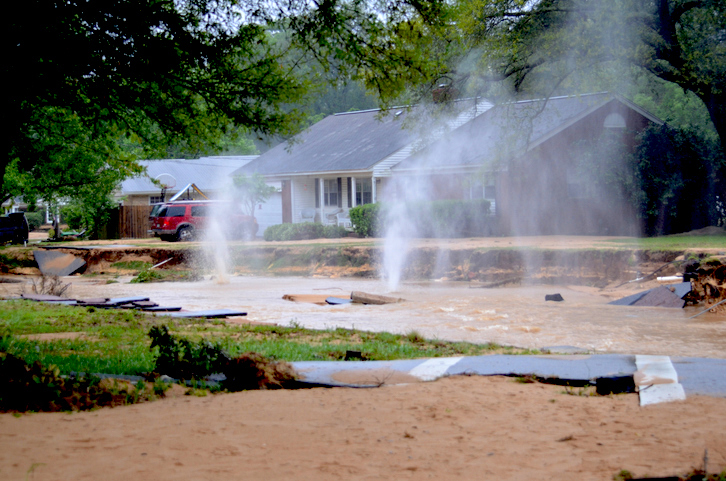Helene Brings Gas Leaks to Augusta

In Georgia and southeast US, we are still mopping up the mess left by hurricane Helene. Unfortunately, there are more storms on the horizon. As you prep for the next storm, keep some things in mind when it comes to your Georgia gas service. According to WJBF News Channel, Helene caused over 400 gas leaks in the Augusta area. So, it’s important to consider natural gas in your home and community during hurricane prep. We’ll cover how hurricanes cause gas leaks and what you need to do.
How Hurricanes Lead to Gas Leaks
There were over 400 gas leaks in the aftermath of Helene. But how does a hurricane cause gas leaks? During a hurricane or strong tropical storm, flooding can affect your natural gas supply pipes or damage gas pipelines. Firstly, flooding can cause erosion that exposes or damages pipelines. Secondly, strong winds uproot trees and pick up other large debris that can also damage pipelines. Finally, flooding rivers can wash out and expose large pipelines as the riverbed shifts.
WJBF News Channel reported that the gas leaks in Augusta last month happened when uprooted trees damaged exposed pipes.
What You Need to Know About Gas Leaks
Natural gas leaks are dangerous. In an enclosed space, natural gas prevents you from getting enough oxygen. In any environment, it can lead to fires or explosions. So, it’s important to know the signs of a gas leak, especially when a major storm is headed your way.
The number one sign of a gas leak is a rotten egg smell. The natural gas we use contains a pungent additive, mercaptan, so that it’s easy to identify a leak. You may also hear a hissing or roaring sound coming from an appliance or pipe. Blowing dirt, browning plants, and bubbles in standing water are also signs of a gas leak.
Immediately report a suspected gas leak to your utility, Atlanta Gas Light, and steer clear of the area. If your house is significantly damaged in a storm, it’s best to wait for professional clearance before you attempt to use gas or electricity. When you have an undetected gas leak, any spark – even flipping a light switch- could be enough to ignite the gas.
If you are in an evacuation or flood zone, you can shut off gas to individual appliances. However, do not shut off your main gas supply. This can make finding damage later on more difficult.
Stay Up to Date on Natural Gas Safety
We understand that waiting for another storm to hit is causing many Georgians a lot of stress. But following safety tips like these will at least give you peace of mind that you are doing what you can. It’s also important to note that although Helene caused many gas leaks, there were no major disruptions Augusta gas service. Stay safe and visit us for more natural gas safety tips at https://www.georgiagassavings.com.
